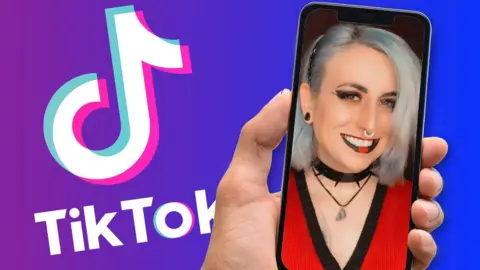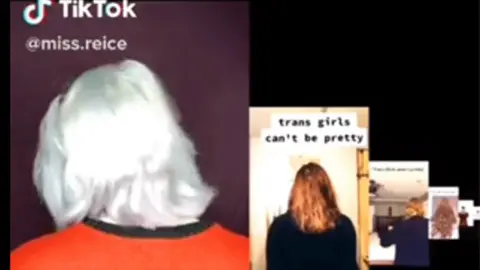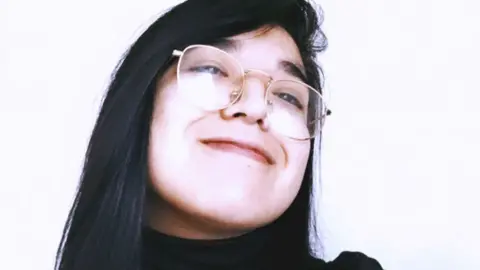Transgender users accuse TikTok of censorship
 BBC
BBCTransgender users on TikTok have complained of censorship after their posts were removed.
Videos, including some of people discussing their lives, were taken down and others had the sound removed, according to some posters.
TikTok said some posts were deleted for breaking guidelines but could not explain why others were removed.
LGBT charity Stonewall said the action sent a damaging message to young trans people using the platform for support.
In a statement, the short-form video platform said: "TikTok is an inclusive space for positive and creative expression. We categorically do not remove any content on the basis of expression of gender identity.
"We have a vibrant and diverse community on TikTok: there are nearly two billion views of content under #trans and over 2.1 billion views of content under #lgbtq.
"We are proud to be a platform for positive and creative expression for our diverse community of users."
It added that some of the videos had been removed because they breached guidelines on smoking and nudity. It could not account for why others were taken down.
 Reice Hodges
Reice HodgesReice Hodges, 35, says she has had several videos removed, including one where she challenged instances of bullying. She claims TikTok deleted these posts before removing the abusive comments she received.
"It makes me mad when my content is removed. There are some videos that I spend hours making… and to have one of those videos removed really discourages me," she told the BBC.
"There are countless amounts of teenagers and adults who have reached out to me and thanked me for putting myself out there to be seen.
"To block something that can bring awareness to the trans community, when we already have so much hate and disgust coming toward us - where else are we supposed to go?"
 Clarissa Jacobo
Clarissa JacoboThree users complained that their videos showing their transition in photographs were removed, although they were later able to repost them.
Clarissa Jacobo, 19, says she has deleted her account in frustration after her TikTok video talking about her experience was repeatedly taken down.
"I felt defeated. Nobody was seeing my content, nobody cared and there was nothing I could do," she told the BBC. "These apps censor LGBT creators who just want to spread positivity and help people but they can't because nobody will be able to see it."
Jeff Ingold, from Stonewall, said: "Trans people are seriously under-represented on television and in film, so digital channels like YouTube and TikTok can help fill this voice by providing a much-needed platform.
"Removing content from trans people sends a damaging message, as young trans people often look online for support and community."
This is the latest in a series of controversies to affect the short-form video app in recent months.
In December, the firm's moderators acknowledged videos made by disabled users were prevented from going viral, due to a policy it said was designed to reduce the amount of cyber-bullying on its platform.
In September, the Guardian reported that the app had previously restricted or banned some political content, including some videos that could be seen as supporting gay rights.


Until just a few years ago, marginalised groups often felt silenced when the mainstream media did not reflect their experiences.
Whether related to race, sexuality or gender identity, many individuals had to look hard to see themselves represented.
Today, some these groups have found their voice and built their own followings by sharing their experiences on social media.
But not all of them are able to.
For a seemingly young and friendly social media company to be accused of "silencing" trans voices will not come as a surprise to many LGBT people.
Photo and video-sharing platforms are regularly accused of "censoring" or removing their posts, perhaps because they judge a gay couple kissing to be "political statement", or a trans person discussing their transition as being "adult content".
Trans lives are being debated internationally, often without trans people having a seat at the table - and there seems to be a generational divide when it comes to acceptance.
For those young people who want to celebrate themselves and speak openly about their struggles, this will be a disappointing moment.
